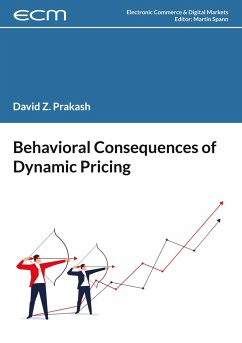Digital technologies are driving the application of dynamic pricing. Today, this pricing strategy is used not only for perishable products such as flights or hotel rooms, but for almost any product or service category. With dynamic pricing, retailers frequently adjust their prices over time to respond to factors such as demand, their supply and that of competitors, or the time of sale. Additionally, dynamic pricing allows retailers to take advantage of a large share of consumers' willingness to pay while avoiding losses from unsold products. Ultimately, this can lead to an increase in revenue and profit. However, the application of dynamic pricing comes with great challenges. In addition to the technological implementation, companies have to take into account that dynamic pricing can cause complex and unintended behavioral consequences on the consumer side.The key objective of this dissertation is to provide a deeper understanding of the impact of dynamic pricing on consumer behavior. To this end, this dissertation presents insights from four perspectives. First, how reference prices as a critical component in purchase decisions are operationalized. Second, how customers search for products priced dynamically, differentiated by business and private customers, as well as by different devices used for the search. Third, whether and how dynamic pricing influences the impact of internal reference prices on purchase decisions. Finally, this dissertation demonstrates that consumers perceive price changes as personalized in different purchase contexts, leading to reduced perceptions of fairness and undesirable behavioral consequences.
Hinweis: Dieser Artikel kann nur an eine deutsche Lieferadresse ausgeliefert werden.
Hinweis: Dieser Artikel kann nur an eine deutsche Lieferadresse ausgeliefert werden.








